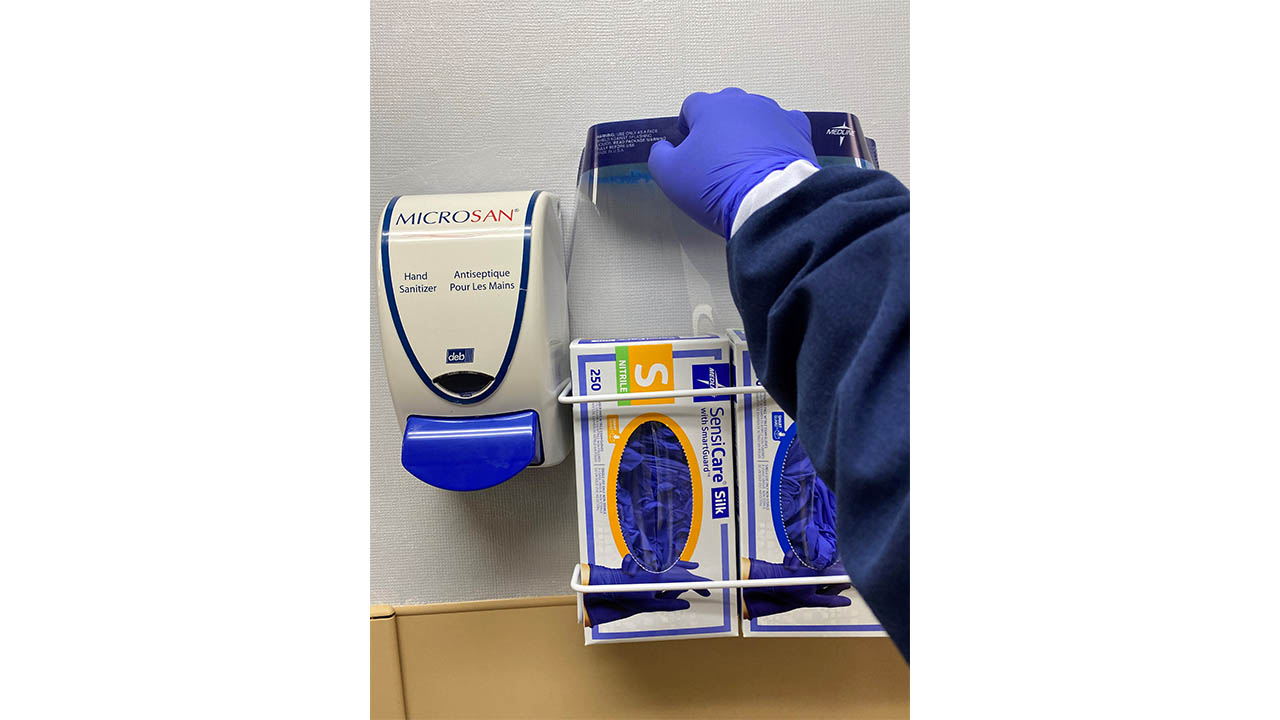Healthcare heroes coping with mental health amidst pandemic
 CREDIT: SALMA HUSSEIN
CREDIT: SALMA HUSSEINBut what about the health of our healthcare heroes?
Healthcare workers all over the world are doing their best to keep populations safe and healthy in this virus-ridden time. Day in and out, patients are admitted to the hospital with severe symptoms of COVID-19. Healthcare professionals, like nurses, physicians, technicians, support workers, and many more become the only hope for these people’s survival.
But what about the health of our healthcare heroes? How are they doing in this crazy time, where they find everyone relying on them? Risking their lives each day by working in a place visited by many people with illnesses, and potentially encountering and caring for those with COVID-19, can really take a mental toll on all healthcare workers.
Hospitals are not the only COVID-19 hotspots; the testing centres are where screeners, RPNs, RNs, and other volunteers risk their health to test the health of others. All healthcare professionals are doing their part, and as a result of the virus, more jobs, like COVID-19 screening positions, are being made to adapt to the changes the pandemic has caused.
While it is a delicate and demanding time, the health of our heroes is still important during this pandemic. Usual mental health management routines and practices have been put on hold in order to cater to the emergency this virus has presented, but if this continues, burnout is the only outcome. Coping and finding new ways to approach the day is important in this time and crucial for the mental health of healthcare workers.
There are students in our London and Fanshawe community who are working in healthcare settings and doing their part during this Pandemic.
Students, who wish to remain anonymous, describe how they felt mentally going into an environment where they were exposed to COVID-19 on a daily basis. One student who works as a porter in one of the hospitals in our community recalled how she felt when she first started her job.
“At the beginning it was pretty overwhelming and getting used to wearing the mask all the time was a little challenging,” said the student. After asking her how she coped with her mental health, she continued to say that “talking with the other people at work and having lighthearted conversations made a difference for me. Being able to chat and laugh and develop work relationships helped ease any stresses that I had earlier on while working,” she recounted.
Another student shared their experience working at a home this past summer as a personal support worker during a COVID outbreak and recounts the mental strain the environment had posed.
“I found the mental strain to be very tough at the start, however, I would say that most people including myself at my workplace were the most mentally exhausted closest to the end of our outbreak,” they said. “You find yourself just begging for it to be over because you have gone so far beyond the breaking point. There was a solid week where not a day went by without someone at work having a breakdown. The mental strain is something very hard to describe without going through it yourself. The toll it takes on you to put your own life at risk while also trying to protect not only the sick patient, but the other residents from getting sick, and your own family is a feeling like no other. I would say having to isolate myself from friends and family took a huge toll on me as well. Being forced to separate from the people that are usually the ones able to restore your mental health is extremely difficult.”
The biggest part about infection control is isolation and making sure you do not spread the virus to others. However, when you have to isolate yourself from your loved ones, many coping mechanisms and comfort that is needed in crucial times, are stripped away for the safety of those you care for.
This is the normal for our health care heroes at the moment. They are isolating themselves from everyone. They are caring for us and putting their needs second.
A lot of these healthcare professionals have amazing teams and coworkers that get each other through the day. However, developing and creating independent mental health coping mechanisms during this new environment is imperative to the health of healthcare workers.
Whether it is having a moment to debrief about your day to someone, doing a recreational activity at home, or simply stealing a few moments to yourself each day doing something you love, try to fit it in your busy schedule. Mental health is just as important as our physical one. Both holistically work together to keep us alive each day.
A much needed thank you to the students in our community who are working on the front lines and doing Fanshawe proud. Thank you to all healthcare workers for everything that you do!















